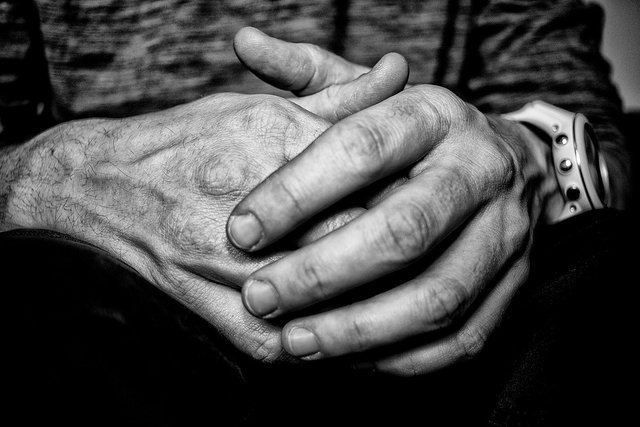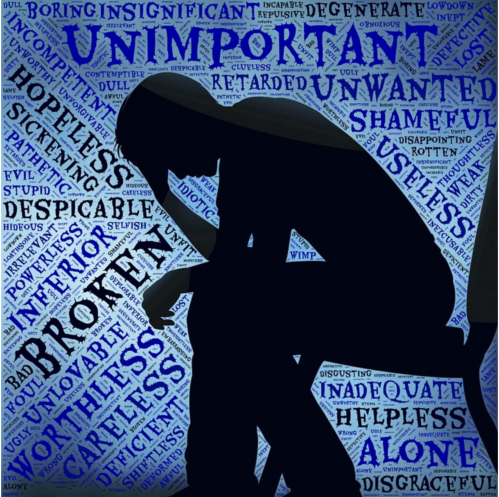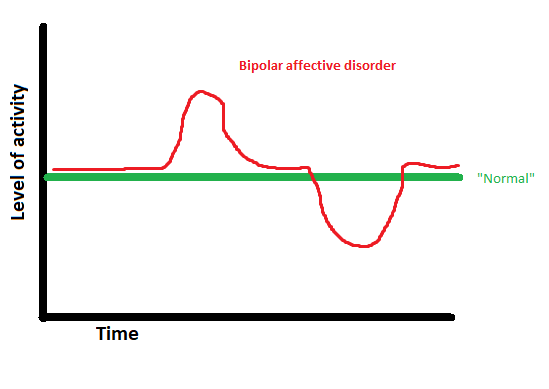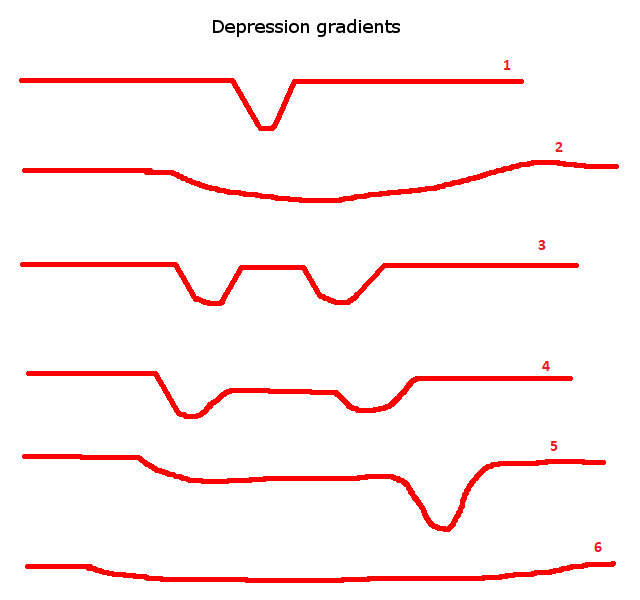Depression from clinical point of view

“After the death of my husband I had the feeling being thrown into a new world. A world where I can see people smiling like I used to do, but unable to imitate this behavior. A world where I lost the ability to feel feelings like the people around me. A world where every food has the same taste: nothingness. A world where I see that my family is suffering due to my changes. ”
There is no one who understands me since I’m in another world. In addition to this I’m feeling physical sick. I’m feeling pain. I can’t sleep at night but I’m tired, tired of this life everything is hurting everything is uncomfortable I just don’t want to breath anymore just don’t want to go on with this. Not a day goes by that I’m not feeling pain in every part of my body that I’m not feeling uncomfortable. I can’t see an end from all of this. I just want it to end. If I would know a solution I would take it. But I don’t see one so the only thing I can think of day in day out is ending it by myself.” This is an attempt to give an insight on what are the thoughts of a lot of people are who are suffering from a depression. Depression is nowadays a widespread disease. It’s hard these days to still find a person who neither had depression and/or doesn’t know someone close to him who had depression once in their life. But if we talk about depression we need differentiate between different types of depression. But before we do this we first need clarify something about mental illnesses:Mental illnesses are not a 0 - 1 state!
It’s not you either have depression or you don’t. Either you have schizophrenia or you don’t. But rather it is a spectrum. The thing is psychologists need to define a threshold which defines at which point the disease is so severe that you have to treat this person. If the threshold is to low, you will have too many patients who will come to the psychologists which will bring a couple of problems. Just imagine which problems would arise if people would went to the doctor because of every little complaint they have. On the other hand if the threshold is too high you will find a lot of people who are sick and yet don’t get any treatment because the definition says they are not sick enough. So you get the point. But of course you could always argue about these definitions. Some find them to low others too high. But what’s important for us to keep in mind is that these definitions are not absolute. Some people might not have by definition a depression and yet they are in a state where they need help. Same applies on the other hand: some people might have by definition a clinical depression and yet they can handle it all by themselves.
Regarding the latter case I would like to clarify something. If you either had/have depression, know someone who have/had depression or you just dealt with the topic you most likely heard already the following sentence or even might thought or said it yourself:“Just get yourself together”
Or something similar like this (e.g. “Just stop being sad”, “try to have a positive mood” etc.). Just a short question: How helpful do you believe is it to say to someone who just had a car accident and is screaming out of pain “get yourself together” or “just ignore the pain” because (and here comes the point):“It’s only in your brain”
Because that’s where our pain is! Physical and emotional pain is both rooted in our brain and not in our arm or any other area.
You will find that people with a depression (depending on the kind of depression) will have physical changes in their brain. So it’s not that simple to just “change your thoughts and be happy”. There are certain types of depression where it is possible to change certain behaviors in your everyday life in order to fight this disease. But even in these cases a simple “change your thoughts” will most likely not be helpful. Rather having a structured approach in dealing with this calamity will be helpful.
I assume that this is also one of the reasons why you will often hear from people who are suffering from depression (especially major depressive) sentences like:“As long as you didn’t experience a depression by yourself, you never can fully get it”
And I hold that sentence to be true, since their brain is working differently compared to a brain from a person without depression (reading this sentence keep in mind what I said early: mental illness is not a 0-1 state; it’s not that you either have depression or not).Definition of depression
Ok, so how is depression defined in a clinical context? First of all there are different types of depression and their definitions vary mainly depending on their duration and intensity. But all of them are part of what is called
Mood affective disorders
Mood affective disorders are characterized by abnormal changes of the mood. These changes are either in the direction to depression or to elation and they differ regarding being acute, episodic and chronic. What’s critical is the level of activity (i.e. abnormal high activity/elation -> mania, abnormal low activity -> depression). This part is important to understand.
Depression is not mainly/necessary about being sad but rather being in state of just not wanting to do ANYTHING.
| There was a case of a woman who experienced an event in her life which afterwards led her to just stare at a white wall for hours. It’s hard to say that she’s sad at that moment. But it’s obvious that she just went into “standby-mode”. |  ------------- ------------- |
A mania is the opposite of that. So the person having a mania is basically overactive. Since this article shall be about depression I will at this point not go any further into details. If you desire a more detailed explanation of a mania let me know in the comments.
In the following you’ll see an overview of mood affective disorders.
Disclaimer: The following graphics are only for illustration purposes! The shown gradients can also look differently: differentiating in intensity, duration, frequency and order (order: regarding bipolar affective disorders).
- • Manic episode

- • Bipolar affective disorder

- • Depressive episode

- In order to make this graph more untestable here are three examples (number 1, 2 and 4):
1. Single depressive episode
2. Chronical single depressive episode
4. Recurrent depressive episodes without full remission between the intervals
Manic episodes as well as bipolar affective disorder also have different types of gradients, which I will as said early not go into further details.
Regarding depressive episodes you can see that there are a lot of different types of gradients. These different gradients are not just a matter of definition, but rather it plays a crucial role for a person who experiences this disease on how he experiences it. Furthermore it plays also an important role on how the disease will be diagnosed and how the treatment will look like.
Healing procedure
If a person is suffering from depression the procedure of healing will look similar to any other disease:
- 1. The person needs to feel sick
- a. Possible problem: a lot of people don’t realize that what they have is a sickness so they might have feelings of guilt and that it’s their fault that they’re always sad and not in the mood of doing anything. What enhances this might be the environment and the people around them; making them accusations that they’re always down and they should get themselves together or might even cut the contact to them and leaving them all alone.
- 2. Going to the doctor
- a. Possible problem: in a LOT of cases people go to the doctor due to a physical complaint yet the root of it is a psychological. What often happens is that the doctor is not able to identify any sickness and leaves the patient with the information that he’s actually healthy. Leading again to the feeling that it’s the fault of the patient and that he imagines these troubles. Alternatively the patient is going to the doctor multiple times up until the doctor is diagnosing him with hypochondria since the patient is describing pain for which there is no physical evidence.
- 3. If however the doctor realizes that the patient might be suffering from a mental illness he might direct him to a trustworthy psychologist.
- a. Possible problem: Money and time. Psychologist are usually very expensive, so it is no surprise that even if you know that you have a mental illness chances are that you just cannot afford it to get a treatment. The other problem is that even if you can afford it, you might still need to wait a couple of month just to get an appointment.
- 4. Treatment
- What I'd like you to know about the treatment:
- a. You need to change certain things by your own. It’s not sufficient to go to the doctor and expect him to just heal you. You need to change certain behaviors under the guideline of the psychologist.
- b. Problem here is that it is of utmost important to have a trustworthy psychologist. Someone who knows what he’s doing. Some might just give you medications right away and that’s it. Some might just give you a treatment which they personally prefer and not the one which suits you best.
- c. You need to know that it takes time! It will take more than a weekend course or a youtube video or a steemit post for that matter to treat this disease.
- 5. Post-treatment
- a. Possible problem: is that the depression comes back. If you got a good treatment chances should be reduced of a relapse (but not eliminated). So that’s another reason why it’s important to take time and effort in looking for a trustworthy psychologist.
If after all of this you now think that you have a depression (which often happens when people read about diseases, psychological or physical) here is a screening from the American and Depression Association of America (ADAA):
https://www.adaa.org/iving-with-anxiety/ask-and-learn/screenings/screening-depression
But PLEASE independent of the outcome DON’T FREAK OUT. It’s just a screening. If you truly believe that you need professional help first ask trustworthy people about your situation and then make your decisions.
If you enjoyed this article and were able to take some benefit out of it, I’ll appreciate it if you upvote, comment and resteem it. Furthermore I appreciate it as well if you follow me @sharing-thoughts if you enjoy these kinds of articles.
----------------------------------------------------------------------------------------------------------
For further information:
http://apps.who.int/classifications/icd10/browse/2016/en#/F30-F39
This is a very inspiring post and i believe a lot of people will be informed by the personal experience you indicated here. The Healing procedure you indicated here also will be helpful.
Thanks a lot for the share @sharing-thoughts
.. Please do stay in touch.
Hey
Thanks a lot for your comment. This is not a phrase... I'm aware that I responded this now to every comment, but I actually do enjoy every one of them.
So thanks again for your feedback and have a nice day.
You're welcome
wow , what a nicely done post , Upvoted ,followed and resteemed . Thank you for taking that much time to write this and to share this with us .In my personal experience having people around you like:your friends , your parents , the ones you love , can help a lot getting over the depression state , even if you are never trully getting over it , most of the time it just keep coming back but when you have the people you care about close to you , they can help you forget about it .
Hey
Thanks a lot for your feedback :)
Yea your personal environment does play a crucial role in these kinds of situations.
"Never truly getting over it", I think it depends from person to person. Sometimes it does go away for good and sometimes it just sticks with you
Have a nice day
Very well written! I'm both a Psychology Student and I personally suffer with depression.
I'd like to also comment on the Biopsychosocial model, not sure if you have heard of it, from your extensive understanding, you may have.
But it basically means that doctors 'should' approach such issues from all three sides; biological (chemical imbalance in the brain, such as a thydoid disfunction or even a Vitamin D deficiency), psychological (how someone has just 'learnt', just look at classical conditioning and such like) or social (are you having social problems at home, or lacking a social life).
Hey
Thanks a lot for your comment.
Yea I am aware of the Biopsychosocial model. It's one of the theories regarding the definition of health, how to get healthy and stay healthy. It's from the positive psychological discipline which I'm thinking about making an article about. It tries to take a lot of different aspect into account when speaking about health and not just a physical point of view. It's kind of interesting (and also other health theories, they provide you with an alternative view on health in contrast to the traditional ones where it's only about one aspect).
If it's not too personal I would be interested in some of your personal experiences with depression. How does it feel like? Is it constant or from time to time? For how long did you have it? How do you deal with it? Do you have plans on how to fight this disease?
You're welcome.
Yeah, it's a really good model to follow, well especially for depression, not sure if it's always good for all medical issues! I don't think it'll be helpful for someone who's broken their leg! (Although, it's helpful if someone is suffering mental issues as a result of their broken leg!)
And of course, I try to open up about my mental health to encourage others! I've had it for as long as I can remember. I had a bit of a strange upbringing - if you read my first post, I talk a little about it there - I was bullied at school and refused to talk. It comes and goes, I think mine is a mixture of social and psychological, and I'm working on trying to overcome these. But I never feel as if I can 100% get over it, maybe 'manage' it is a better term? I recognise my triggers, understand what works to either pull myself out of a lull or stop myself from going into one in the first place.
It feels like, to me, that the whole world is against me, I feel useless, underappreciated, worthless and I get paranoid too. It doesn't help that I'm extremely introverted either. This world is more so for extroverts I feel. Although sometimes I feel I have undiagnosed autism somedays!
Regarding the leg example: Yes definitely. The model is also not intended to be applied on a specific disease but rather about being healthy in general. Although it can be applied to specific diseases (e.g. depression).
First of all: Thanks for opening up. I've read your post; very interesting story. Regarding the 100% getting over: I'm not sure if it's a good perspective on this issue. I don't think that there is a state where a person can say I'm 100% free of depression (or for that matter, psychological issues in general). Some people have certain traits stronger than other. You might have some social issues while others might have issues regarding being aware of oneself. So I personally belief it's more about just saying "ok that's me." and that's it. No rating, just accepting oneself and not thinking that I'm abnormal or something. You can do this if you showed me this normal person that you are different from.
I find the feelings you describe interesting if I may say and I believe that there a lot more people out there with these kinds of feelings than the average person thinks there is.
I'm sorry but I would like to disagree regarding your sentence "This world is more so for extroverts". I think it's, again, more a matter of the perspective. Introverts do have a lot of advantages in comparison to extroverts. I think it's sometimes helpful to look at personality just like we for example look at skin color (not the old fashion way). Can you say a white person is better than a black person? Or that he has it easier than a black person (generally speaking)? Everyone has its traits; one has more of this the other more of that. The traits we were born with don’t make us better or worse people, but rather what we make out of these.
For me, food often triggered depression and the easiest treatment has been to change my diet along with seeing a counselor, working a 12 step program, and reading books. A whole plant based food diet for me has led to roughly an 80% reduction in triggering of depression and eliminated the need for any medication also! I only was motivated to try the diet after going into a depression consistently within just minutes of eating meals that were filled with a lot of meat, animal products, and added sugars, oils and salts usually all to great excess together.
Would you care for a post on the biology of depression?
Congratulations @sharing-thoughts! You received a personal award!
You can view your badges on your Steem Board and compare to others on the Steem Ranking
Do not miss the last post from @steemitboard:
Vote for @Steemitboard as a witness to get one more award and increased upvotes!